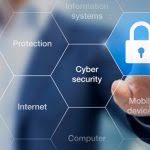The Cyber Security Crisis a Looming Threat and a Critical Shortage.
The digital world is under cyber siege. As technology continues to evolve at breakneck speed, so too do the threats it faces. From sophisticated ransomware attacks to data breaches targeting sensitive information, cyber security remains a constant concern. This reality was starkly highlighted at a recent House Homeland Security Committee hearing where Rep. Troy Carter (D-LA) sounded the alarm about a critical gap in cyber security workforce preparedness.
Rep. Carter posed crucial questions to the witnesses about the effectiveness of current policies and the glaring lack of skilled professionals to effectively combat these escalating cyber threats. His concerns echoed the widespread anxieties about our nation’s vulnerability in the face of a growing digital landscape.
The Numbers Don’t Lie:
The statistics paint a grim picture of the looming crisis. According to the Cybersecurity and Infrastructure Security Agency (CISA), there are currently over 700,000 open cybersecurity jobs in the United States. This alarming shortage is a direct result of a combination of factors:
* Lack of Awareness and Interest: Many young people are unaware of the diverse and rewarding career paths available in cyber security.
* Limited Educational Opportunities: The availability of quality cyber security programs at all levels of education is often lacking.
* Competitive Job Market: The demand for skilled cyber professionals far exceeds the supply, leading to a highly competitive job market.
The Domino Effect:
This workforce gap goes beyond just a shortage of skilled professionals; it directly impacts our national security, economic stability, and the safety of our citizens.
* Vulnerable Infrastructure: Without a sufficient number of qualified cybersecurity experts, critical infrastructure like power grids, healthcare systems, and financial institutions remain vulnerable to attack.
* Compromised Data: Data breaches can lead to identity theft, financial loss, and reputational damage for individuals and businesses alike.
* Economic Instability: Cyberattacks disrupt business operations, resulting in significant financial losses and economic instability.
Addressing the Crisis:
Rep. Carter’s call to action underscores the urgent need to prioritize cybersecurity workforce development. We must:
* Invest in Education: Promote cyber security education at all levels, from K-12 to higher education, to foster a new generation of skilled professionals.
* Support Training Programs: Create and support robust training programs for individuals looking to enter or advance their careers in cyber security.
* Foster Collaboration: Encourage collaboration between public and private sectors to address the skills gap and develop effective cybersecurity strategies.
A Shared Responsibility:
Addressing this crisis requires a collective effort from government, industry, and educational institutions. Investing in a strong cyber workforce is not just protecting our data and infrastructure; it is protecting our national security, our economy, and our future.
The call to action is clear. We must act now to bridge this critical gap and secure our digital future.






